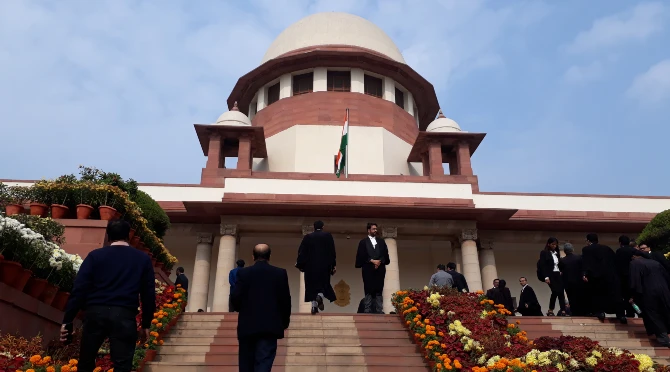
The Supreme Court ruled on Wednesday that states with abundant mineral resources can collect backdated royalties and taxes on mines and mineral-bearing lands, starting from April 1, 2005.
These payments are to be collected from both the central government and mining lease holders. The payments will be spread out over the next 12 years, beginning on April 1, 2026.
The Court also clarified that no interest or penalty should be charged for dues relating to the period before July 25, 2024. This decision was made by a nine-judge Constitution bench, which rejected the argument that the ruling from July 25 should only apply to future cases.
The bench, led by Chief Justice of India DY Chandrachud and including Justices Hrishikesh Roy, Abhay S. Oka, BV Nagarathna, JB Pardiwala, Manoj Misra, Ujjal Bhuyan, Satish Chandra Sharma, and Augustine George Masih, was tasked with determining whether the royalties imposed by the central government on mines and mineral-bearing lands since 1989 should be refunded to the states.
On July 25, the same bench, in an 8:1 majority decision, upheld that states have the constitutional authority to impose taxes on mines and mineral-bearing lands. The bench also ruled that the royalty paid for extracted minerals is not considered a tax.
Solicitor General Tushar Mehta, representing the central government, argued against applying the July 25 decision retroactively, stating that it would lead to a rise in prices that would negatively impact consumers, as many industries rely on minerals.
In their majority ruling, CJI Chandrachud and the 7 other judges explained, “Royalty is not a tax. It is a contractual consideration paid by the mining lessee to the lessor for the enjoyment of mineral rights. The liability to pay royalty arises from the contractual conditions of the mining lease. Payments made to the government cannot be deemed a tax merely because the statute provides for their recovery as arrears.”
The judgment made it clear that the power to tax mineral rights lies with state legislatures and that Parliament does not have the authority to tax mineral rights under the general entry in the Constitution.
However, Justice Nagarathna, who dissented from the majority view, argued that royalty is essentially a tax. She contended that the Union law, specifically the Mines and Minerals (Development and Regulation) Act, 1957 (MMDR Act), which governs the imposition of royalty, diminishes the states’ power to levy taxes on minerals.
In her minority judgment, Justice Nagarathna warned that allowing states to impose taxes on minerals could create inconsistency in managing this national resource, lead to unhealthy competition among states, and potentially destabilize the federal system.
The central issue of the case was whether the enactment of the Mines and Minerals (Development & Regulation) Act (Mines Act) stripped state governments of their power to tax and regulate mining activities.




